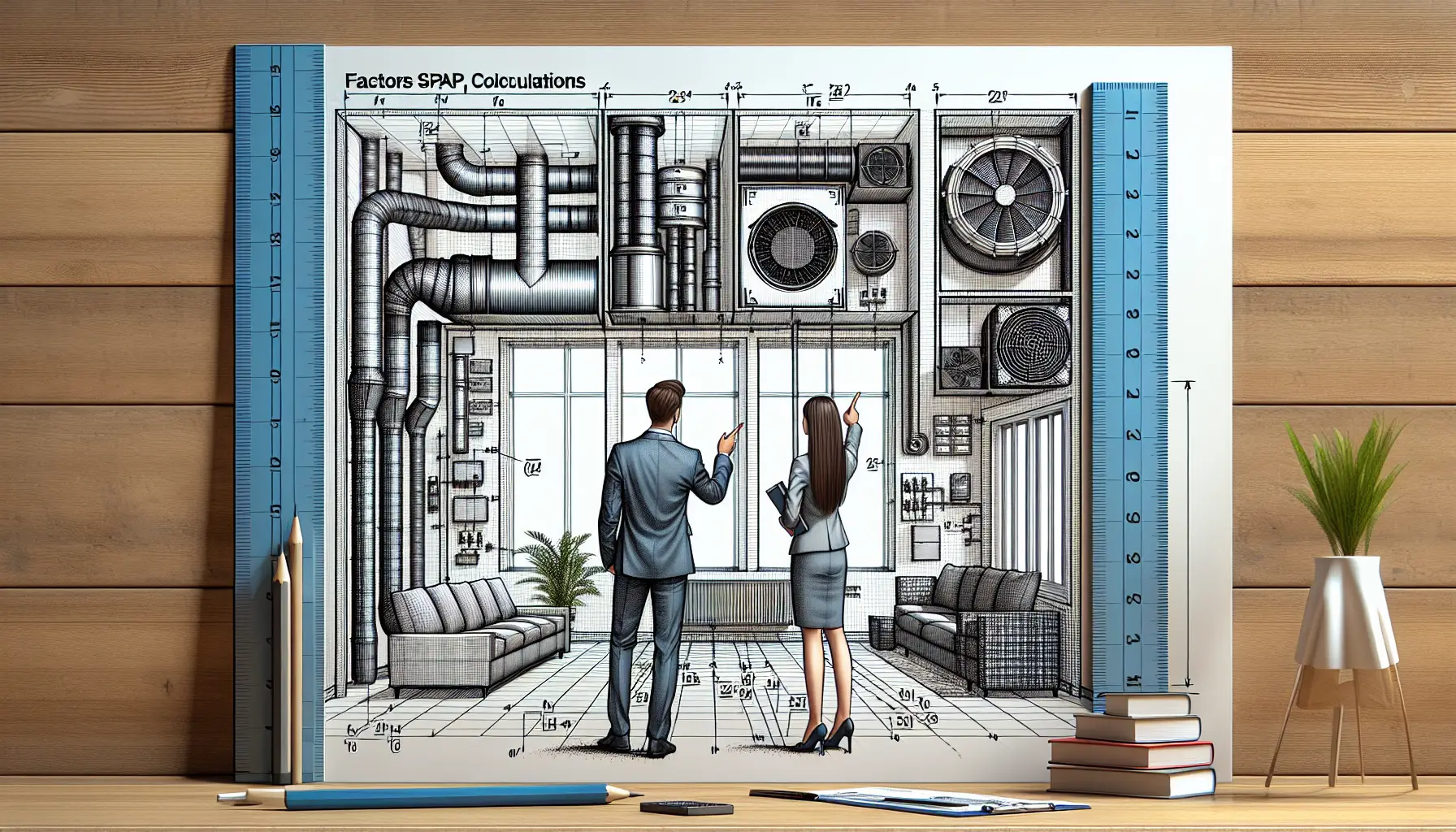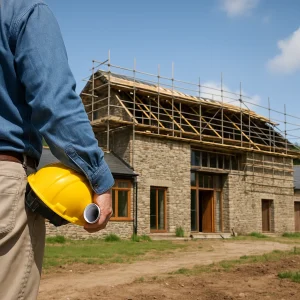Unveiling the Precision of SAP Calculations: Delving into Mechanical Ventilation Systems
In an era where sustainability and energy efficiency remain at the forefront of architectural innovation, SAP (Standard Assessment Procedure) calculations play a pivotal role in evaluating the energy efficiency of dwellings across the UK. Mechanical ventilation systems, whether centralised or decentralised, form a critical component of these evaluations. At Ratio Seven Limited, we understand the intricacies of these systems, assisting in SAP assessments that ensure energy use is optimised, and regulatory standards are met.
Understanding SAP and Its Role
SAP calculations are integral to gauging how a building’s energy consumption aligns with UK regulatory benchmarks. They offer a systematic approach to assessing dwellings, from the materials used in construction to ventilation systems in place. Ventilation, especially mechanical ventilation, occupies a significant position due to its influence on indoor air quality and energy consumption.
Types of Ventilation Systems
SAP calculations differentiate between various ventilation systems, each influencing energy consumption in distinct ways. Let’s explore these systems further.
Mechanical Ventilation Systems
Mechanical ventilation systems are sophisticated, offering controlled ventilation that reduces reliance on draughts and other unpredictable natural ventilation forms. These systems include:
- Centralised Mechanical Ventilation and Heat Recovery (MVHR)
- Decentralised Mechanical Extract Ventilation (dMEV)
Each comes with its own set of benefits and considerations in SAP evaluations.
Centralised Mechanical Ventilation and Heat Recovery (MVHR) Systems
Centralised systems like MVHR units control air distribution and heat recovery from extracted air, which would otherwise be lost. SAP evaluations take into account:
- Thermal Performance: Insulation and the unit’s location relative to the building’s thermal envelope significantly influence efficiency.
- Air Flow Rates: MVHR systems are tested against established air flow rates, and regularly updated (like the 69 l/s benchmark in SAP 2012).
- Specific Fan Power (SFP): In-use factors applied to SFP values bridge the gap between lab results and real-life performance.
Decentralised Mechanical Extract Ventilation (dMEV) Systems
dMEV systems offer flexibility and can be tailored for continuous operation. SAP calculations for these systems incorporate:
- Aerodynamic Performance: Recent SAP updates have introduced more accurate aerodynamic performance data, leading to more representative energy use calculations.
- Balanced Systems with Heat Recovery: These systems, where installed, gain attention for their heat recovery potential, a key metric in SAP values.
Efficiency and Performance
Efficiency is at the heart of any ventilation system’s effectiveness. Aspects like the aerodynamic performance of duct systems and specific fan power measurements are meticulously analysed:
- Enhanced Energy Performance: Efficient systems ensure minimal energy loss, thus allowing reduced environmental impact and cost savings.
- Innovative Duct Designs: The incorporation of low-pressure drop duct systems is recognised, reflecting advancements in material and design that enhance energy efficiency.
Building Air Permeability and Pressure Tests
Crucial to SAP calculations is the building’s air permeability. Air leakage poses a risk to energy efficiency, prompting:
- Air Pressure Tests (APT): These tests identify air leakage, ensuring adherence to building regulations and highlighting areas where energy efficiency can be improved.
Integration with Other Building Elements
Mechanical ventilation doesn’t function in isolation. SAP calculations also consider how these systems interact with:
- Insulation: Proper insulation complements mechanical ventilation, retaining heat and reducing the reliance on active heating solutions.
- Heating Systems: The synergy between heat recovery in ventilation and traditional heating systems can significantly uplift overall energy efficiency.
- Renewable Energy Technologies: Integration with renewable sources like solar panels or wind turbines further enhances the dwelling’s sustainable footprint.

FAQs
What are SAP calculations, and why are they important?
SAP calculations evaluate a dwelling’s energy performance, ensuring compliance with UK building regulations. They provide a comprehensive assessment of energy consumption, helping homeowners and developers achieve energy efficiency and reduce carbon footprints.
How do mechanical ventilation systems impact SAP ratings?
Mechanical ventilation systems play a critical role in determining SAP ratings as they control indoor air quality, temperature, and energy use. Efficient systems contribute positively to SAP scores by reducing energy loss and recovering heat.
Can integrating mechanical ventilation with renewable technologies enhance energy efficiency?
Yes, combining mechanical ventilation with renewable technologies like solar panels can significantly boost energy efficiency. This integrative approach harnesses natural energy sources, reducing dependency on fossil fuels and lowering energy bills.
About Ratio Seven Limited
Ratio Seven Limited is a key provider of SAP calculation services, entrenched in ensuring our clients’ buildings reflect the pinnacle of energy efficiency. As a small enterprise rooted in Nantwich, Cheshire, we pride ourselves on our expertise in energy assessments and sustainable building practices. With over a decade of service, we dedicate ourselves to blending innovation with proven methodologies, ensuring that every assessment aligns with stringent government standards.
Founded on September 16, 2008, Ratio Seven remains committed to offering personalised solutions that reflect our deep understanding of the industry. Despite fluctuating growth, our ethos revolves around providing high-calibre services that uphold energy efficiency as the cornerstone of modern construction.
The technical precision and comprehensive scope of SAP calculations underscore their significance in today’s energy-conscious world. With detailed evaluations of mechanical ventilation systems, these assessments not only chart a path to compliance but also pave the way for higher sustainability standards within residential spaces. At Ratio Seven, we stand at the intersection of innovation and sustainability, ready to navigate the evolving landscape of energy-efficient dwelling assessments.




